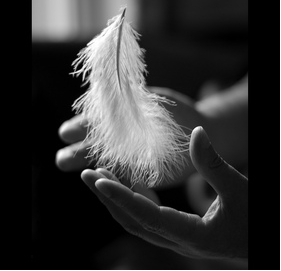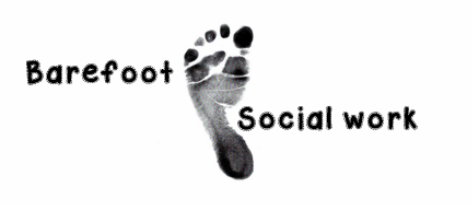
“A child can live through anything provided they are told the truth and allowed to share the natural feelings people have when they are suffering” Eda Le Shan.
I am currently supporting a family where a parent has a life limiting illness. Devastatingly, it is expected that the parent has only a couple of weeks left with them. In preparation I have been identifying support services in the area that can assist the children, aged six and eighteen, during the difficult time before and after the parents passing. During my research I have found that following a survey carried out by Winston's Wish, it is estimated that:
Most children and young people will experience loss, mainly due to bereavement. Bereavement is described as the loss that people experience when someone close to them dies. This could be a close relative, family member or friend. Alternatively the loss could be due to family difficulties such as separation and divorce. Grief is the combination of feelings that are experienced as a result of the loss of something or someone close to them. Everyone experiences grief differently – there is no “right” way to feel. Feelings can include: shock, despair, intense sadness, guilt, depression, relief, fear and anger. It can sometimes feel that people move backwards and forwards between feelings. It is not unusual to feel numb, feeling that you have no feelings at all. Grief is a normal and natural response to loss. Children and young people will go through a range of the feelings described above. However, the ways in which they respond to their loss will be determined by their age, their understanding of death/loss, their relationship with the person they have lost, the circumstances surrounding the event and the way the situation is dealt with by others around them. The following information describes some of the common reactions that children and young people may experience following a loss, what they may need and what parents and professionals can do to help. This is not an exhaustive list and reactions will vary with each individual. Ages 3-6yrs
Ages 7-10yrs
Ages 11-13
Ages 14-20
Children need reassurance that whatever has happened is not their fault; permission to express their feelings and be a child, in a constructive way; honest explanations; help and support to express their feelings; and, to be included in the funerals and rituals, if appropriate. Great Answers to Difficult Questions about Death explores children's thoughts and feelings on the subject of death and provides parents and other caring adults with guidance on how to respond to difficult situations. Grief in Young Children explores the common misconception that pre-school children are not capable of experiencing grief in the same way that older children do. This book challenges this assumption, demonstrating that although young children may not express grief in the same way as older children, they still need to be supported through loss. There are a number of organisations that can offer support to children and their carers during a time of bereavement. The following are some that I have found to be particularly good and are available nationally or in the Greater Manchester area. CALM Manchester Office – 2nd Floor, Gateway House, Piccadilly South, Manchester, M60 7LP Tel: 0800 58 58 58 (Monday - Friday 17:00hrs – 03:00hrs) Website: www.thecalmzone.net CALM works to tackle depression amongst young men (aged 15-35) across Manchester, Merseyside and Bedfordshire. It exists to help them deal with the problems they are facing, no matter what is troubling them Childline 1 Sickle Street, Manchester M2 1DL Tel: 0870 336 2920 Fax: 0870 336 2921 Website: www.childline.org.uk Chips Programme – North West Contacts: Sue Tabner: 0870 336 2924 Maria Molloy: 0870 336 294 Childline provides a free, 24-hour, helpline for children in distress or danger. Trained volunteer counsellors advise and protect children and young people who may feel they have nowhere else to turn. Childline also offers an outreach programme, to schools, through its CHIPS programme, focussing on a range of areas including loss and bereavement Riprap Website: www.riprap.org.uk Riprap is a website that can help young people (12-16yrs) cope when a parent has cancer. There are stories from other young people going through similar situations and information to help them to understand and deal with what is going on in their family. RD 4 U Freephone: 0808 808 1677 E-mail: [email protected] Website: www.rd4u.org.uk This is a website designed for young people by young people as part of CRUSE Bereavement Care’s Youth Involvement Project. Offers support for young people after the death of someone close. There is a specific area for boys. Winston’s Wish Clara Burgess Centre, Bayshill Road, Cheltenham, GL50 3AW General Enquiries: 01242 515157 Helpline: 0845 20 30 40 5 Fax: 01242 546187 E-mail: [email protected] Website: www.winstonswish.org.uk This is one of my favourites. I have used them in the past following the sudden death of a foster carer I was working with. The support they were able to offer both the 9 year old birth child and 13 year old foster child was amazing and it really did make a difference. Winston’s Wish supports bereaved children and young people. The website explains how professionals can help bereaved young people and offers ideas for resources and activities. They offer face to face work to all children and families bereaved of a parent, primary care-giver or sibling through suicide, murder and manslaughter and military deaths, living anywhere in the UK. For families who have been bereaved through an accident or illness, this service is only available for families living in Gloucestershire, South Gloucestershire, West Sussex and Greater Manchester. They have a variety of options available to families including: Individual work A home visit by their practitioners will assess the needs of each bereaved family. Individual work may be offered to parents and children before, after or instead of a group activity. Group work Practical and creative activities encourage teamwork, building confidence and self-esteem. This sets the scene for the young people to begin sharing their own stories, to untangle and express a range of feelings, increase their knowledge about death and to continue their individual journeys towards understanding their grief. Under 5’s (C.U.B.S) Winston’s Wish offers a six-week play and grief support group programme for children aged between 3 and 5 years who have experienced the death of someone important. Teenagers The Outward Bound teenage groups combine challenging outdoor activities, team work and opportunities to talk and think about bereavement experiences with other teenagers. The programme of activities and small group work were created to empower, challenge and motivate, and to help teenagers in living with their bereavement. SWITCH A community outreach bereavement support service for vulnerable children and young people aged between 8-14 . Drop-In The Winston’s Wish Drop-ins for the North West region run weekly in Wigan and Leigh: Tuesday Drop-in sessions are held every Tuesday from 11am-1pm at Compassion in Action, Patrick House, 58 Leigh Rd, Leigh, WN7 1QR Wednesday Drop-in sessions are held every Wednesday from 3.30-5.30pm at Sunshine House, Wellington Street, Wigan, WN1 3SA Grief Encounter Grief Encounter Project, PO Box 49701, London, N20 8XJ Email: [email protected] Website: www.griefencounter.com This organisation helps bereaved children and young people rebuild their lives after a family death. The project aims to improve resources available to bereaved children and their families Childhood Bereavement Network 8 Wakley Street, London, EC1V 7QE Tel: 020 7843 6309 Fax: 020 7837 1439 Email: [email protected] Website: www.childhoodbereavementnetwork.org.uk The Childhood Bereavement Network aims to provide all children and young people in the UK, together with their families and other caregivers, including professional carers, easy access to a choice of high-quality local and national information, guidance and support to enable them to manage the impact of death on their lives. If you require any further help identifying services in your area. Please do get in touch through my contact page.
0 Comments
|
AuthorI'm a Qualified Children's Social Worker with a passion for safeguarding and family support in the UK. Archives
August 2016
Categories
All
|

